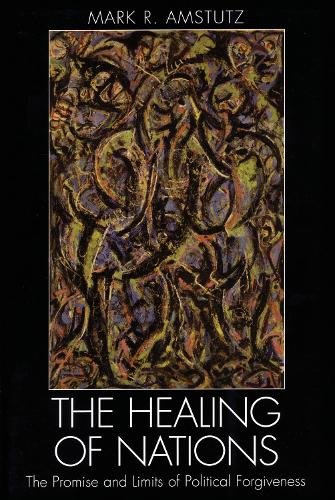
The Healing of Nations: The Promise and Limits of Political Forgiveness
(Paperback)
Publishing Details
The Healing of Nations: The Promise and Limits of Political Forgiveness
By (Author) Mark R. Amstutz
Bloomsbury Publishing PLC
Rowman & Littlefield Publishers
29th July 2004
United States
Classifications
General
Non Fiction
Political science and theory
327.101
Physical Properties
Paperback
294
Width 148mm, Height 229mm, Spine 22mm
435g
Description
How does one forgive an international political transgression as deep as genocide or apartheid Forgiveness is often conceived of as an element of personal morality, and even at that it is difficult. This book argues that it is also an essential part of political ethics, especially when dealing with collective wrongdoing by political regimes. In the past, a retributive justice demanding prosecution and punishment of all past offenses has kept the international community away from moving on to the next step in regime change. Here, Mark Amstutz takes a restorative justice approach, calling for nations to account for crimes through truth commissions, public apology and repentance, reparations, and ultimately forgiveness and the lifting of deserved penalties. The distinctive feature of forgiveness is the balance it strikes between backward-looking accountability and forward-looking reconciliation. The Healing of Nations combines a theory of the role of forgiveness in public life with four key case studies that test this ethic: Argentina, Chile, Northern Ireland, and South Africa. Amstutz uses the hard cases to illustrate the promise and limits of forgiving without forgetting. Visit our website for sample chapters!
Reviews
A careful discussion of philosophical and theological writings on forgiveness, guilt, justice, and reconciliation * Political Studies Review *
The author has mastered an impressive array of material and readers will delight in the extensive documentation and valuable endnotes. In a world maddened by fear and vengeance, Amstutz presents an important advocacy for sanity: restorative justice. * Journal of Church and State *
Author Bio
Mark R. Amstutz is professor of political science at Wheaton College.
